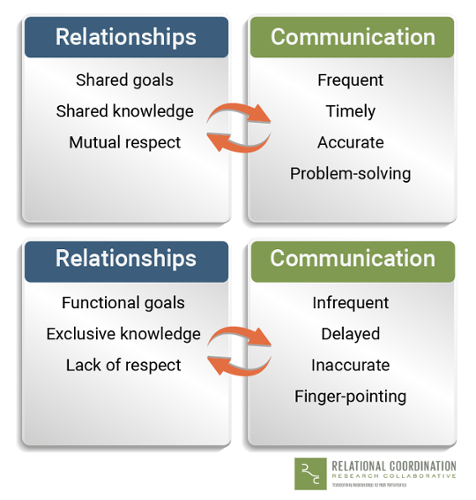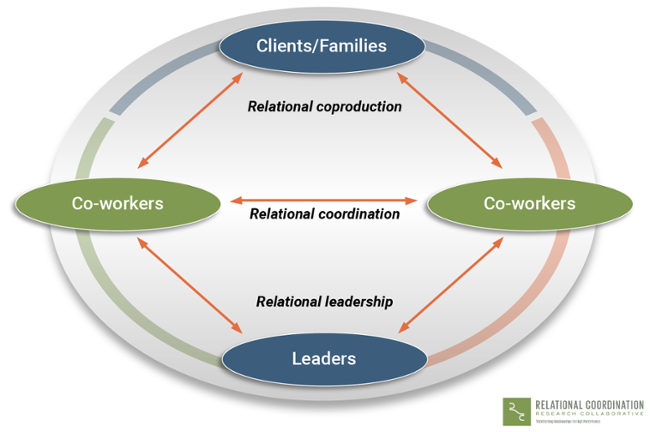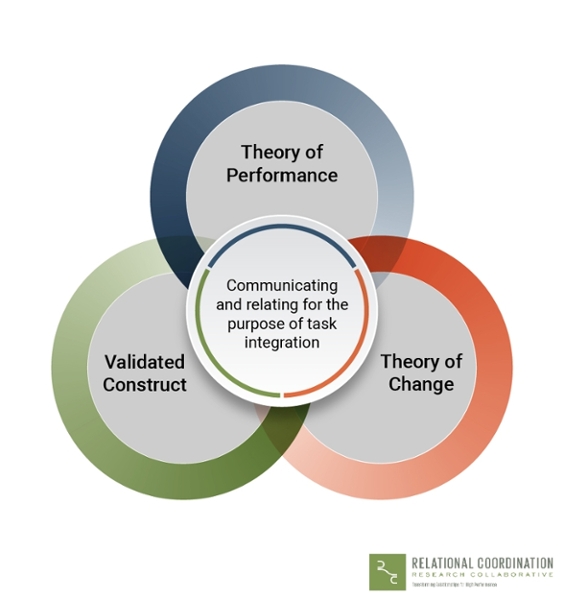Relational coordination is a powerful method for working better together to create value for your employees and customers. It is a complement to lean, Agile and other improvement methods, and a well-validated method in the healthcare, education and commercial sectors.
Relational coordination is shaped by organizational structures and, when strong, it supports organizations in achieving a wide range of desired performance outcomes including quality, safety, efficiency, financial outcomes, well-being, learning and innovation. Relational coordination is particularly important for achieving desired outcomes when work is highly interdependent, uncertain and time constrained, whether in times of crisis or everyday stress.
Relational coordination is measured as a network of ties across roles in any work process that requires coordination. Its outcomes and predictors have been tested in 73 industry sectors and 36 countries. See Revisiting Relational Coordination: A Systematic Review.
Relationships shape the communication through which coordination occurs, for better or worse
This is called relational coordination, communicating and relating for the purpose of task integration
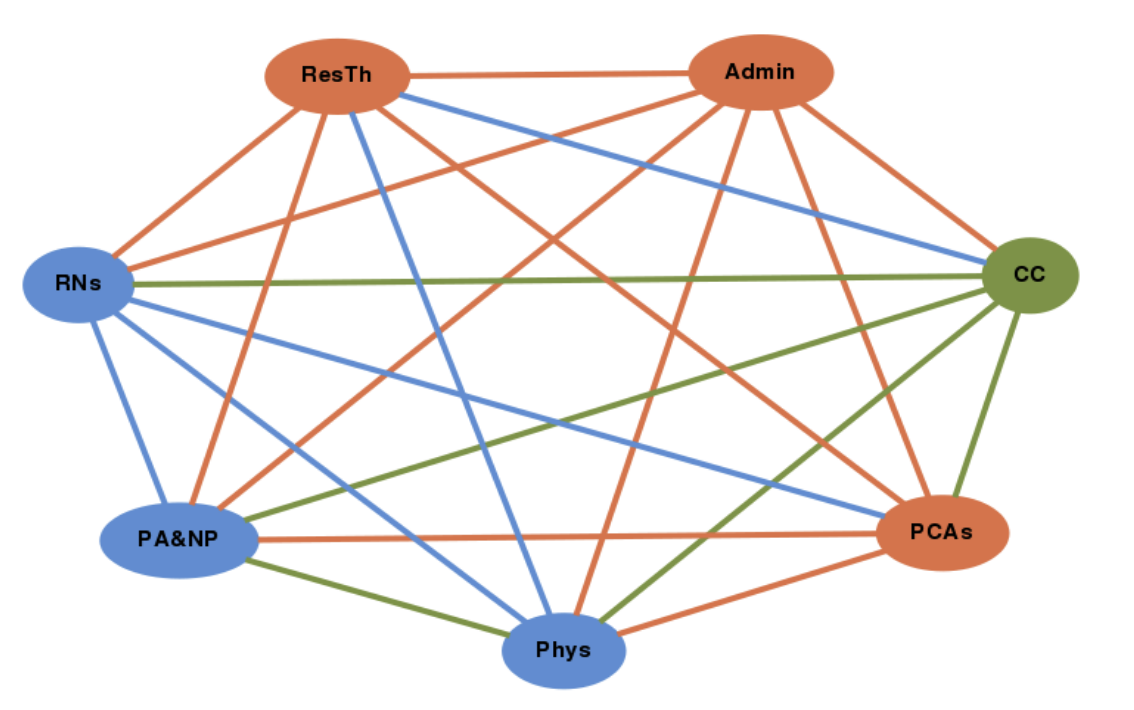
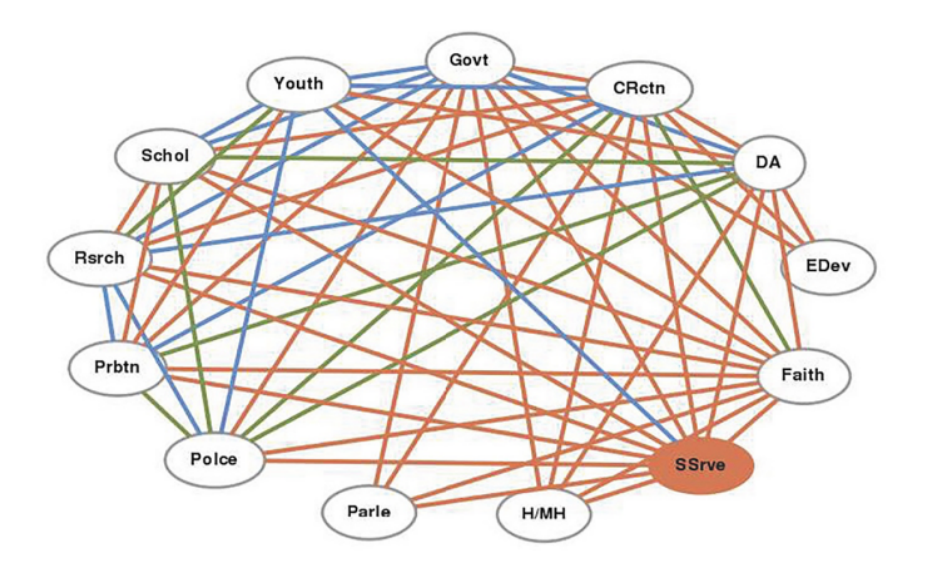
Today's organizations continue to be structured much like organizations were at the time of the Industrial Revolution. This structure informs our mental models and the way we approach each other and our work. Dr. Jody Hoffer Gittell's ground breaking research helps us understand why that may no longer serve us and how coordinating our work relationally matters. She argues that gaining awareness of and skill in relational coordination may enable us to be more agile and perform the adaptive work of our time. The theory of relational coordination proposes that highly interdependent work is most effectively coordinated through relationships of shared goals, shared knowledge, and mutual respect, and supported by frequent, timely, accurate, and problem-solving communication. Research shows that relational coordination is associated with a wide range of positive performance outcomes, and that organizations support or undermine it through the design of their work systems. This work began in the airline industry and is now practiced and studied in a variety of industries including healthcare, education, and banking, and in many countries including the United States, Denmark, Canada, Scotland, and Pakistan. (TEDTalk Rochester, 2017).

